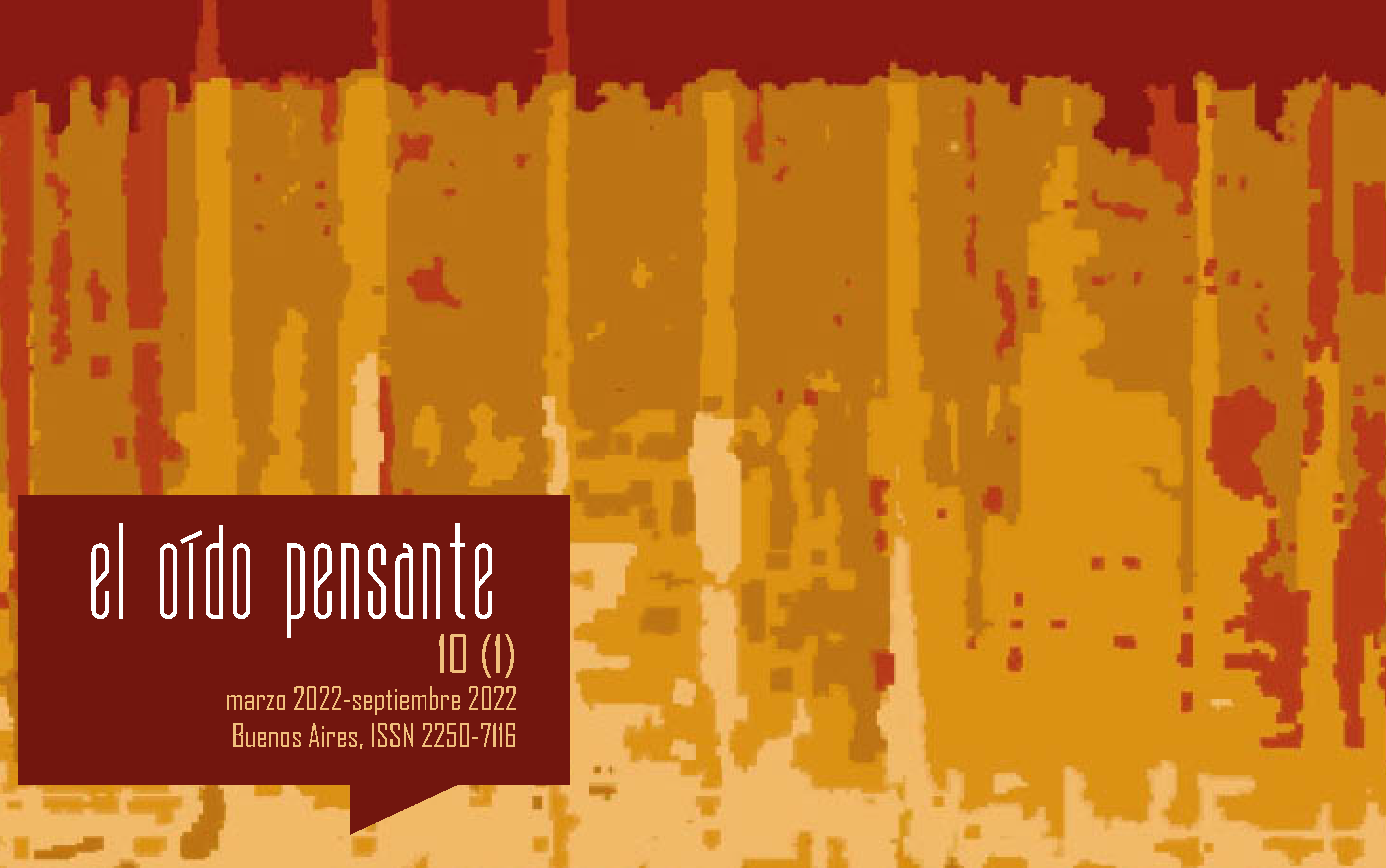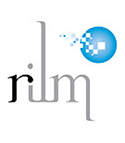O gênero musical hoje: reflexões num contexto digital e globalizado
Resumo
Este artigo trata da forma como os gêneros musicais tendem a operar no contexto atual, dominado pelos processos de globalização e digitalização do capitalismo neoliberal. Isso fez com que os gêneros se articulassem por meio de duas forças aparentemente antagônicas, mas necessárias entre si: a generificação e a individualização. Para compreender a forma como ambas operam, serão analisados os seus impactos na produção, intermediação, infomediação e consumo de música. O objetivo deste texto é refletir sobre a forma como todos os tipos de música (independentemente da sua origem ou status) são susceptíveis de se tornarem géneros musicais, de acordo com a forma como este conceito é compreendido nas músicas populares urbanas ocidentais.Downloads
Referências
Beer, D. (2013). Genre, Boundary Drawing and the Classificatory Imagination. Cultural Sociology, 7(2). doi: https://doi.org/10.1177/1749975512473461
Biddle, I. (2011). Music, Masculinity and the Claims of History: The Austro-German Tradition from Hegel to Freud. Farnham, Surrey: Ashgate.
Blacking, J. (2015). ¿Hay música en el hombre? (2ª ed.). Madrid: Alianza.
Bonini T. y Gandini, A. (2019). “First Week is Editorial, Second Week is Algorithmic”: Platform Gatekeepers and the Platformisation of Music Curation. Social Media + Society 5(4). doi: https://doi.org/10.1177/2056305119880006
Born, G. y Haworth, C. (2017). From Microsound to Vaporwave: Internet-Mediated Musics, Online Methods, and Genre. Music and Letters, 98(4), 601-647. doi: https://doi.org/10.1093/ml/gcx095
Brackett, D. (2016). Categorizing Sound: Genre and Twentieth-Century Popular Music. Los Ángeles: University of California Press.
Celma, Ò. (2010). Music Recommendation and Discovery. The Long Tail, Long Fail, and Long Play in the Digital Music Space. Nueva York: Springer.
Dahlhaus, C. (1983). Foundations of Music History. Cambridge: Cambridge University Press.
Derrida, J. (1980). The Law of Genre. Critical Inquiry, 7(1), 55-81.
Drott, E. (2013). The End(s) of Genre. Journal of Music Theory, 57(1), 1-45. doi: https://doi.org/10.1215/00222909-2017097
Drott, E. (2018). Music as a Technology of Surveillance. Journal of the Society for American Music, 12(3), 233-267. doi: https://doi.org/10.1017/S1752196318000196
Duff, D. (Ed.) (2014 [2000]). Modern Genre Theory (2ª ed.). Londres y Nueva York: Routledge.
The Echo Nest. (16/1/1994). The Future of Music Genres is Here [Post de blog]. Recuperado de https://blog.echonest.com/post/73516217273/the-future-of-music-genres-is-here
Eriksson, M. et al. (2019). Spotify Teardown. Inside the Black Box of Streaming Music. Cambridge, Massachusetts: MIT Press.
Fabbri, F. (1999). Browsing Music Spaces: Categories and the Musical Mind. Tagg.org. Recuperado de https://www.tagg.org/others/ffabbri9907.html
Fabbri, F. (2016). How Genres are Born, Change, Die: Conventions, Communities and Diachronic Processes. En S. Hawkins (Ed.). Critical Musicological Reflections: Essays in Honour of Derek B. Scott (pp. 179-192). Londres y Nueva York: Routledge.
Frow, J. (2006). Genre: The New Critical Idiom. Nueva York: Routledge.
Gelbart, M. (2007). The Invention of “Folk Music” and “Art Music”. Emerging Categories from Ossian to Wagner. Cambridge: Cambridge University Press.
Golder, S. A. y Huberman, B. A. (2005). The Structure of Collaborative Tagging Systems. Journal of Information Science, 32(2). Recuperado de https://arxiv.org/ftp/cs/papers/0508/0508082.pdf
Guaus, E. (2009). Audio Content Processing for Automatic Music Genre Classification: Description, Databases, and Classifiers. (tesis de doctorado). Universidad Pompeu Fabra, Barcelona, España.
Hagen, A. N. (2015). The Playlist Experience: Personal Playlists in Music Streaming Services. Popular Music and Society, 38(5), 625-645. doi: https://doi.org/10.1080/03007766.2015.1021174
Han, B.-C. (2017). La sociedad del cansancio. Barcelona: Herder.
Hesmondhalgh, D., Jones, E. y Rauh, A. (2019). SoundCloud and Bandcamp as Alternative Music Platforms. Social Media + Society, 5(4). doi: https://doi.org/10.1177/2056305119883429
Holt, F. (2003). Genre Formation in Popular Music. Musik & Forskning, 28, 77-96.
Holt, F. (2007). Genre in Popular Music. Chicago y Londres: University of Chicago Press.
Karatani, K. (2005). Transcritique: On Kant and Marx. Cambridge, Massachusetts: MIT Press.
Kjus, Y. (2016). Musical Exploration via Streaming Services: The Norwegian Experience. Popular Communication, 14(3), 127-136. doi: https://doi.org/10.1080/15405702.2016.1193183
Knees, P. y Schedl, M. (2016). Music Similarity and Retrieval: An Introduction to Audio- and Web- Based Strategies. Nueva York: Springer.
Krogh, M. (2019). Music-Genre Abstraction, Dissemination and Trajectories. Danish Musicology Online, 9, 83-108. Recuperado de http://www.danishmusicologyonline.dk/arkiv/arkiv_dmo/dmo_09/dmo_09_artikel_04.pdf
McKay, C. y Fujinaga, I. (2006). Musical Genre Classification: Is it Worth Pursuing and How Can it Be Improved? En 7th International Conference on Music Information Retrieval (ISMIR-06) (pp. 101-106). Victoria, Columbia Británica. Recuperado de http://www.music.mcgill.ca/~cmckay/papers/musictech/ISMIR_2006_Genre.pdf
McLeod, K. (2001). Genres, Subgenres, Sub‐Subgenres and More: Musical and Social Differentiation Within Electronic/Dance Music Communities. Journal of Popular Music Studies, 13(1), 59-75. doi: https://doi.org/10.1111/j.1533-1598.2001.tb00013.x
Moore, A. F. (2001). Categorical Conventions in Music Discourse: Style and Genre. Music & Letters, 82(3), 432-442.
Morris, J. W. (2015). Curation by Code: Infomediaries and the Data Mining of Taste. European Journal of Cultural Studies, 18(4-5), 446-463. doi: https://doi.org/10.1177/1367549415577387
Negus, K. (1999). Music Genre and Corporate Cultures. Londres: Routledge.
Ochoa, A. M. (2003). Músicas locales en tiempos de globalización. Buenos Aires: Grupo Editorial Norma.
Peterson, R. A. (2005). Problems in Comparative Research: The Example of Omnivorousness. Poetics, 33(5-6), 257-282. doi: https://doi.org/10.1016/j.poetic.2005.10.002
Prior, P. A. (2009). From Speech Genres to Mediated Multimodal Genre Systems: Bakhtin, Voloshinov, and the Question of Writing. En C. Bazerman, A. Bonini y D. Figueiredo (Eds.). Genre in a Changing World (pp. 17-34). San Francisco: Parlor Press.
Ramírez, J. y Flores, M. J. (2020). Machine Learning for Music Genre: Multifaceted Review and Experimentation with Audioset. Journal of Intelligent Information Systems, 55, 469-499. doi http://dx.doi.org/10.1007/s10844-019-00582-9
Razlogova, E. (2013). The Past and Future of Music Listening: Between Freeform DJs and Recommendation Algorithms. En J. Loviglio y M. Hilmes (Eds.). Radio’s New Wave. Global Sound in the Digital Era (pp. 62-76). Londres y Nueva York: Routledge.
Regev, M. (2013). Pop-Rock Music: Aesthetic Cosmopolitanism in Late Modernity. Cambridge: Polity.
Ross, B. H. y Spalding, T. L. (1994). Concepts and Categories. En R.J. Sternberg (Ed.). Handbook of Perception and Cognition. Thinking and Problem Solving (pp. 119-148). Academic Press. doi: https://doi.org/10.1016/B978-0-08-057299-4.50010-4
Sandywell, B. y Beer, D. (2005). Stylistic Morphing: Notes on the Digitisation of Contemporary Music Culture. Convergence: The International Journal of Research into New Media Technologies, 11(4), 106-121. doi: https://doi.org/10.1177//1354856505061057
Stirner, M. (1976). El único y su propiedad. Buenos Aires: Libros de Anarres.
Striphas, T. (2015). Algorithmic Culture. European Journal of Cultural Studies, 18(4-5), 395-412. doi: https://doi.org/10.1177/1367549415577392
Taylor, T. D. (2016). Music and Capitalism: A History of the Present. Londres y Chicago: University of Chicago Press.
Tepper, S. J. y Hargittai, E. (2009). Pathways to Music Exploration in a Digital Age. Poetics, 37 (3), 227-249. doi: https://doi.org/10.1016/j.poetic.2009.03.003
Todorov, T. (1976). The Origin of Genres. New Literary History, 8(1), 159-170.
Toynbee, J. (2000). Making Popular Music: Musicians, Creativity and Institutions. Londres: Bloomsbury Academic.
Uricchio, W. (2017). Data, Culture and the Ambivalence of Algorithms. En M. T. Schäfer y K. van Es (Eds.). The Datafied Society: Studying Culture through Data (pp. 125-138). Amsterdam: Amsterdam University Press.























